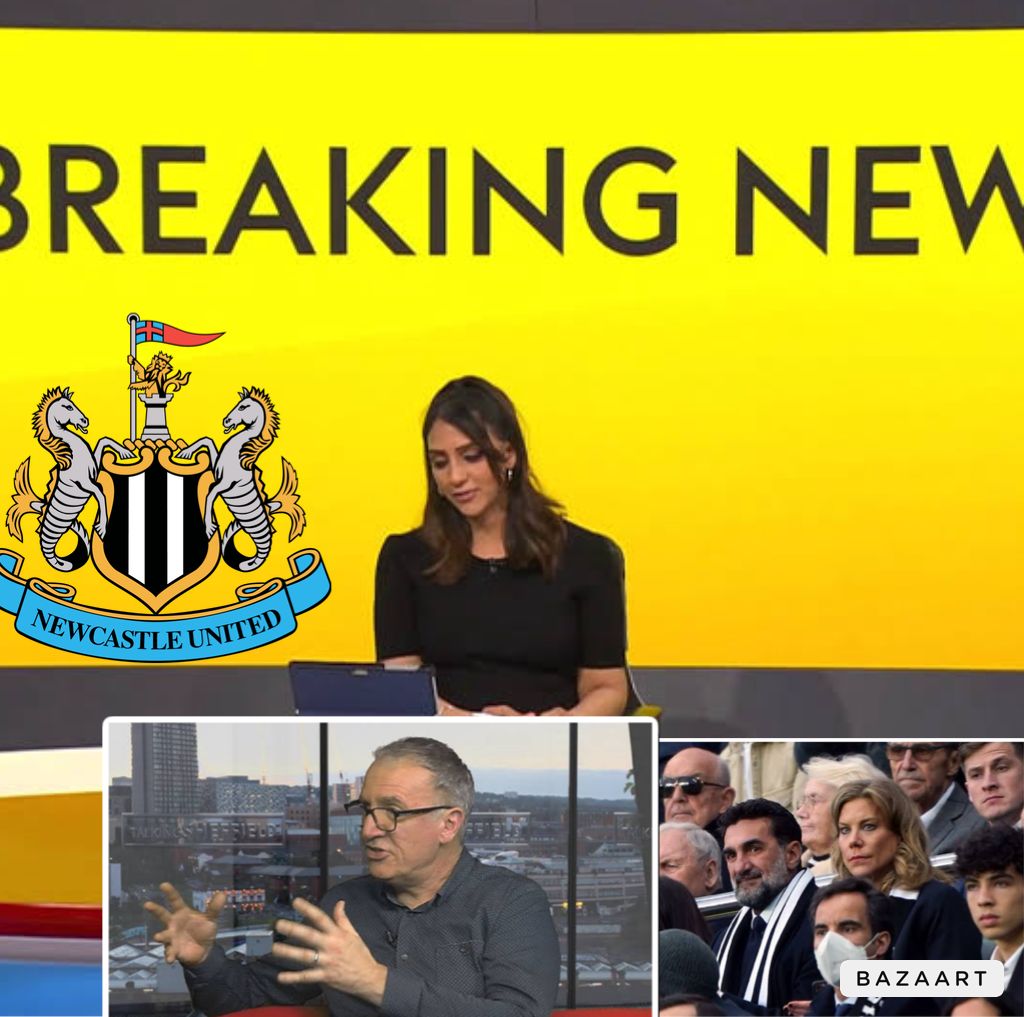Breaking news- Kieran Maguire issues verdict on Newcastle going ‘all in on one huge transfer’ amid £100m twist
Newcastle United have successfully sidestepped a PSR breach for the 2023-24 season. However, this near-miss raises questions about the club’s financial future and strategy moving forward.
In the era of Mike Ashley, Newcastle fans were largely disconnected from the intricacies of the Premier League’s financial regulations. Ashley’s conservative spending meant that Financial Fair Play (now Profit and Sustainability Rules, or PSR) was never a pressing concern. This fiscal prudence often frustrated supporters who longed for greater ambition in the transfer market. Under Ashley’s ownership, the club consistently balanced its books, maintaining financial stability but achieving little on the pitch.
The arrival of the Saudi Public Investment Fund (PIF) has transformed the club’s fortunes. Their substantial investment has propelled Newcastle to Champions League qualification and their first cup final in over two decades. However, this success has come with significant financial outlay. As a result, Newcastle fans are now acutely aware of PSR constraints.
To continue their upward trajectory while adhering to PSR, the club has adopted various strategies, from lucrative commercial initiatives to creative accounting measures like quasi-swap deals. For the three-year PSR assessment period ending June 30, 2024, Newcastle managed to stay within the rules. The challenge now is balancing immediate ambitions with long-term financial sustainability.
According to The Telegraph, PIF will provide new sporting director Paul Mitchell and manager Eddie Howe with a £100m transfer budget this summer. To understand how this fits into the club’s broader financial picture, TBR consulted Kieran Maguire, author of “Price of Football” and a football finance lecturer at the University of Liverpool.
The focus at St James’ Park this summer has been on player sales rather than acquisitions. While Yankuba Minteh and Elliot Anderson have been sold, key players like Miguel Almiron, Callum Wilson, Alexander Isak, Bruno Guimaraes, and Anthony Gordon have been linked with potential moves. For clubs outside the Premier League’s Big Six, which generate roughly double the revenue of their peers, a successful player trading model requires both buying and selling talent.
Kieran Maguire notes that despite Mike Ashley’s many flaws, he left the club in a strong position to increase spending significantly under PSR guidelines. PIF has capitalized on this, but they must be cautious not to overextend. Strategic signings like Lewis Hall from Chelsea exemplify this measured approach. Initially, PIF’s strategy was to avoid relegation, spending £150m on players in the 2021-22 season while recouping only £7m. The following season saw similar figures. Such a net spend of £292m is unsustainable long-term.
Youth development, including staff costs and infrastructure, is exempt from PSR calculations. Additionally, sales of academy graduates count as ‘pure profit’ under PSR since there are no initial fees to offset. Newcastle’s increased investment in their academy since PIF’s takeover suggests a long-term strategy to develop a talent pipeline similar to Chelsea’s.
Maguire highlights the ethical concerns of treating young players as commodities but acknowledges that this is a growing trend in Premier League clubs. With changes in the EPPP rules, hoarding young talent has become common. A successful academy can yield significant financial returns, easing PSR constraints.
The multi-club ownership model is gaining popularity, and Newcastle aims to follow in the footsteps of Manchester City’s City Football Group. Amanda Staveley has expressed interest in acquiring clubs in Europe and beyond for their commercial and accounting benefits. This model can also help overcome recruitment challenges posed by Brexit, which restricts signing 16 and 17-year-olds from the EU.
By establishing a network of satellite clubs, Newcastle can maintain access to young talent and develop players within their system before integrating them into the main squad. This approach allows the club to remain competitive in a post-Brexit landscape.
Premier League clubs spent £245m on quasi-swap deals to meet the June 30 PSR deadline. These transactions, where two players are exchanged at similar values to boost accounting figures, are legal but controversial. The Premier League has urged clubs to conduct these deals at fair market value amidst accusations of inflating player values.
Maguire argues that the concept of ‘fair value’ in football is nebulous. The sale of a player for £30m who was bought for £7m and never played highlights the subjective nature of valuations. The Premier League’s ability to enforce ‘fair value’ is limited, making it challenging to close this perceived loophole.
The Premier League’s constitution requires a two-thirds majority of clubs to approve changes to PSR rules. A bloc of seven clubs can effectively veto any reforms. Newcastle was one of six clubs involved in quasi-swap deals before the deadline, suggesting they could form a coalition to prevent amendments to these rules. Maguire notes that alliances based on shared financial interests are likely, making significant changes to PSR unlikely.
Newcastle United’s journey from the frugality of the Mike Ashley era to the ambitious spending under PIF highlights the complexities of modern football finance. Navigating PSR while pursuing success on the pitch requires a delicate balance. Through strategic player trading, youth development, and innovative financial tactics, Newcastle aims to build a sustainable and competitive future. However, the challenges of PSR compliance and the ethical implications of their strategies will continue to shape the club’s path forward.
